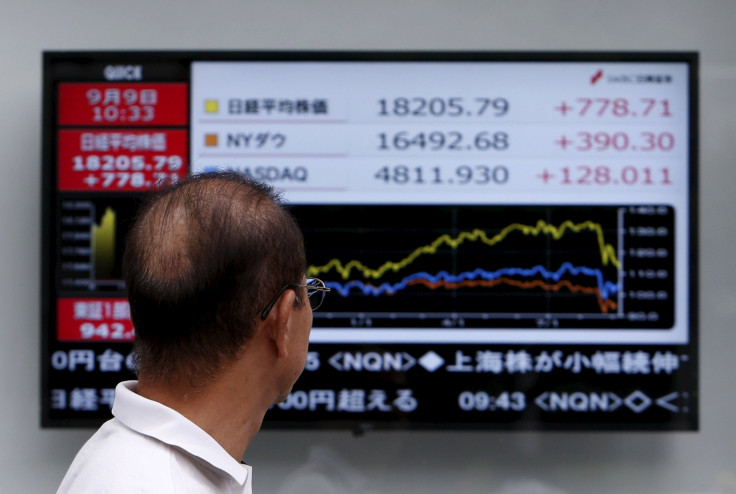Asia Shares Drop On Possibility Of December Rate Hike

By Hideyuki Sano
TOKYO (Reuters) -- Asian shares stumbled on Thursday after U.S. Federal Reserve Chair Janet Yellen said a December interest rate hike in the United States is a "live possibility," sending short-term U.S. bond yields to 4-1/2-year highs and pushing the dollar broadly up.
MSCI's broadest index of Asia-Pacific shares outside Japan dropped 0.5 percent, led by 1.2 percent fall in Australian shares.
Wall Street shares also slipped on Wednesday, with S&P 500 Index falling 0.4 percent from a three-month high touched on Tuesday, driven by losses in the energy sector after a fall in oil prices.
Japan's Nikkei bucked the trend and rose 0.6 percent, as growing expectations of a December rate hike by the Fed boosted the dollar against the yen.
In her first public comments since the Fed's meeting last week, Yellen said the country is ready for higher interest rates if upcoming economic data justify them.
"If the incoming information supports that expectation then our statement indicates that December would be a live possibility," she said.
Tomoaki Shishido, fixed income strategist at Nomura Securities, said: "Her comments confirmed that a rate hike in December is the Fed's base case scenario."
Global markets have been gripped by uncertainty over the timing of the Fed's rate increase, and riskier assets have been hit by concerns that higher borrowing costs in the United States could shake up an already wobbly global economy.
Adding to the December policy debate was William Dudley, the influential president of the New York Fed and a permanent voter on policy. Dudley said later on Wednesday that he would "completely agree" with Yellen.
U.S. economic data on Wednesday supported Yellen's guarded optimism, with private employers maintaining a steady pace of hiring in October and with a jump in new orders buoying activity in the services sector.
"We've been saying a rate hike in December is possible. Signs that the Chinese economy and markets seem to be stabilizing may be prompting the Fed to be more confident," said Fumio Nakakubo, Japan CIO at UBS's wealth management division.
The U.S. bond market reacted promptly, with the policy-sensitive U.S. two-year notes yield rising to 0.850 percent in early Asian trade on Thursday, its highest level since April 2011.
The yield on the 10-year Treasuries notes rose to as high as 2.241 percent on Wednesday, its highest level since Sept. 17. It last stood at 2.229 percent.
Near-term Federal fund futures contract fell to the lowest levels in a month or longer, suggesting the market is pricing more than a 50 percent chance of a rate hike at the Fed's next meeting on Dec. 15-16.
The spectre of higher rates helped to boost the dollar against other currencies and precious metals.
The euro shed 0.9 percent on Wednesday and hit a 3-1/2-month low of $1.08435. It last traded at $1.0862.
The yen also weakened to 121.72 to the dollar, its lowest since Aug. 31 and last stood at 121.58.
The dollar index hit a three-month high of 98.054, having risen 1.5 percent from this week's low and coming within sight of its August peak of 98.334.
Gold slipped to a one-month low of $1,106.70 per ounce while silver dropped to as low as $15.06 per ounce, also one-month low.
Oil prices erased their gains so far this week, falling 4 percent on Wednesday on tumbling gasoline prices and rising U.S. crude inventories.
Brent crude futures dropped to $48.91 per barrel from Tuesday's three-week high of $50.91.
Stagnant oil prices are hurting shares of oil producing countries, with Saudi Arabian shares hitting near three-year low on Wednesday before it managed a small rebound.
(Editing by Shri Navaratnam)
© Copyright Thomson Reuters 2024. All rights reserved.











